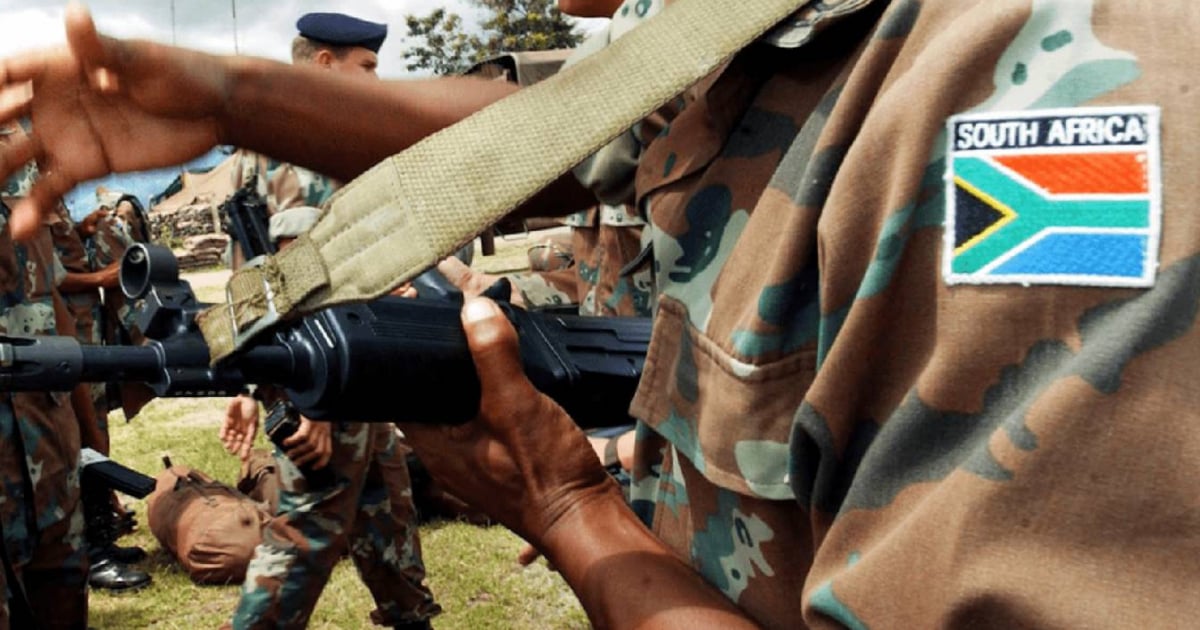
Related videos:
The South African Air Force (SAAF) has terminated a long-standing agreement with Cuba's Revolutionary Armed Forces (FAR), which had allowed South African cadets to receive training on the island since 2014.
General Rudzani Maphwanya, head of the South African National Defence Force (SANDF), explained that the cancellation of this program, which was recently announced, is due to "incompatibilities with local regulations," as reported by Military Africa.
Maphwanya noted that despite the quality of training in Cuba, the challenges of readjusting upon returning to South Africa made it unsustainable to continue with the agreement.
The training program in Cuba has faced severe criticism, particularly due to the difficulties that South African cadets have had in integrating into the standards and operational procedures of the SAAF upon their return to South Africa.
The cadets were primarily trained on Russian aircraft and under a flying doctrine that did not align with the Western flight protocols of the South African Air Force, which created complications when it came time to transition back to their home country.
The last group of cadets that completed their training in Cuba will now have to restart their training from scratch in South Africa.
This situation has caused frustration among the military personnel, who were promised promotions and immediate operational deployments upon completing their training on the island.
However, the cadets who accumulated up to 65 flight hours in Cuba were unable to obtain certification to operate under the local standards of the SAAF, leaving many of them performing administrative tasks while they await retraining.
The program also faced a series of logistical and financial challenges. In 2021, only 15 cadets were selected to travel to Cuba, of whom 9 were sent back after failing the initial tests.
The cadets spent six months in Cuba learning Spanish before starting their technical training on Mi-17 helicopters, but upon returning to South Africa, they were deemed unfit to fly according to SAAF standards.
Officials from the SAAF indicated that, with a focus on Russian-origin aircraft and Cuban flight doctrine, the training has not been effective in meeting the operational needs of the South African Air Force.
One of the officials mentioned that the cadets could take up to ten years to qualify as junior pilots under local standards, highlighting the cost and challenges of the program. "The Air Force will not benefit from this experience in Cuba," the official stated.
The cancellation of the agreement with Cuba occurs against the backdrop of rising tension in South Africa regarding cooperation with the Cuban regime.
A few months ago, the Gauteng High Court in Pretoria annulled a donation of 50 million rand (approximately 2.65 million dollars) that the South African government had intended to grant to Cuba.
This donation had been criticized by the organization AfriForum, which filed a legal challenge arguing that South Africa, with its struggling economy, could not afford such an expense.
The court's decision was applauded by some sectors, such as the DA party, which has called for funds intended for Cuba to be redirected towards urgent domestic issues like healthcare, education, and employment.
According to AfriForum, South Africa cannot continue to fund projects abroad while facing a severe financial crisis.
The cancellation of this air training agreement with Cuba is a blow to the cooperative relationship between the two countries, which has been extensive in recent years.
Although the South African government has defended its support for Cuba within the framework of humanitarian and development projects, the country's economic situation has complicated such agreements.
Frequently Asked Questions about the Cancellation of the Air Training Agreement between South Africa and Cuba
Why did South Africa cancel the air training agreement with Cuba?
South Africa canceled the air training agreement with Cuba due to incompatibilities with local regulations, particularly because training on Russian aircraft and Cuban flight doctrine did not align with the Western protocols of the South African Air Force. This lack of alignment complicated the integration of cadets upon their return to the country.
What were the main criticisms of the training program in Cuba?
The training program in Cuba faced criticism due to the difficulties cadets encountered in adapting to the SAAF standards upon their return to South Africa. Cadets trained in Cuba were unable to obtain the certification required to operate under local standards, leading many to perform administrative tasks while waiting to be retrained.
What logistical and financial challenges did the training program in Cuba face?
The program faced significant logistical and financial challenges, including the selection of only 15 cadets to travel in 2021, of whom 9 were sent back after failing the initial tests. Additionally, the cadets had to learn Spanish before beginning their technical training, further complicating the process.
What impact does the cancellation of the agreement have on the relations between South Africa and Cuba?
The cancellation of the agreement represents a setback to the cooperative relationship between South Africa and Cuba, particularly in the military sphere. Although the South African government has defended its support for Cuba in humanitarian projects, internal pressure and the country's economic situation complicate the continuation of such agreements.
Filed under: